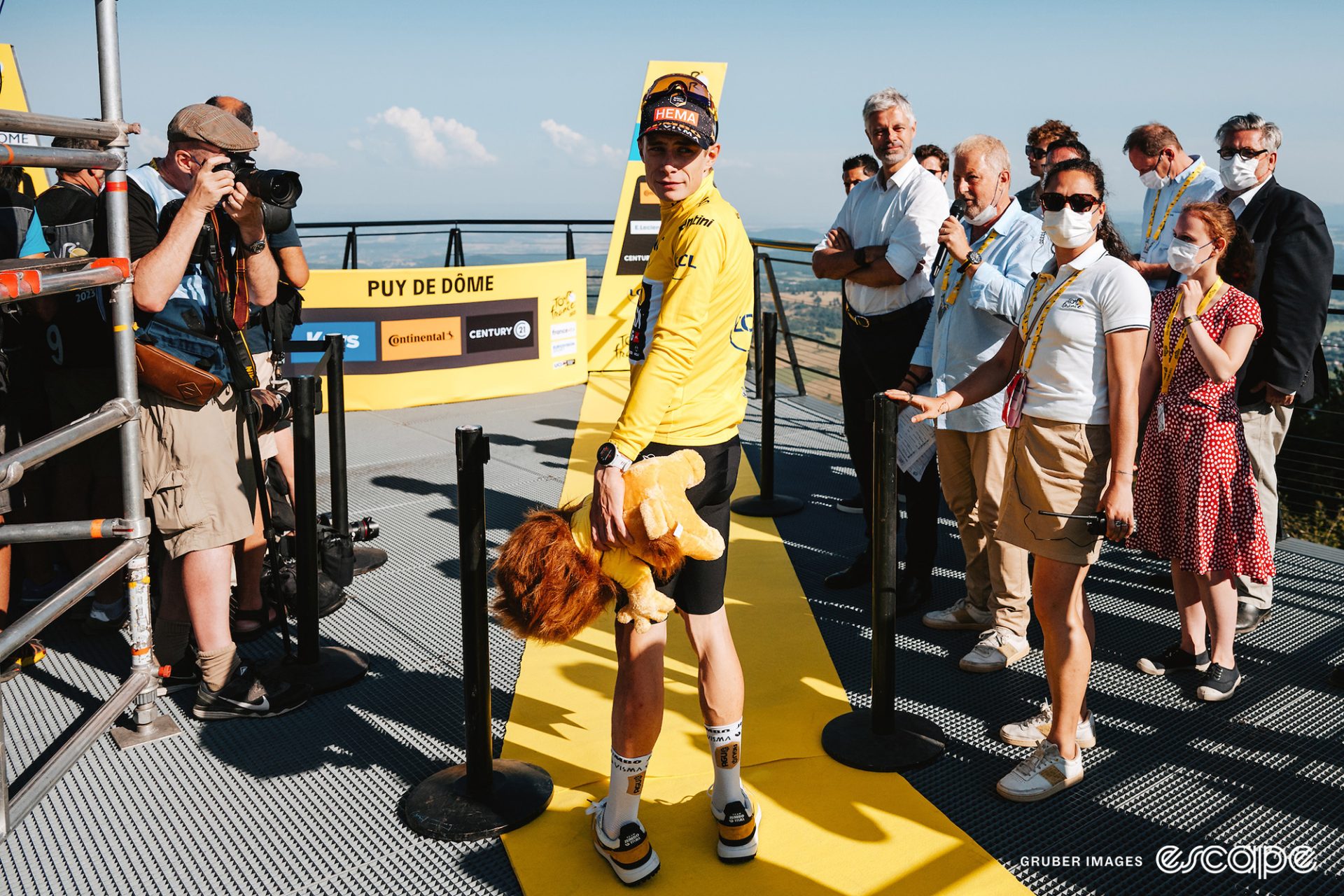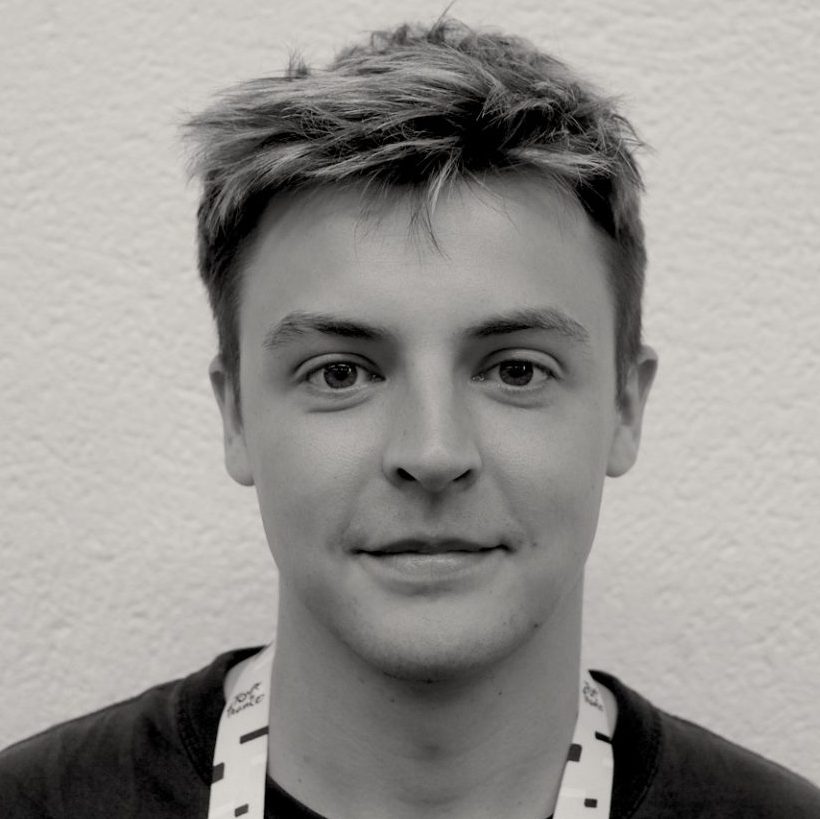It is eerily quiet when we reach the summit of the Puy de Dôme. It is not exactly how you would imagine a return to a historic Tour de France climb after 35 years would be.
The only way up to the top of the climb, unless you’re in the actual Tour de France, is by the funicular, a mountainside railway, that loops around the extinct volcano parallel to the thin strip of road the riders will use.
Because the road is closed to the public, fan access stops about 4 kilometres below the summit, which means that when we arrive and disembark, we are greeted with near silence.
Some television crews and Tour de France employees are already here, quietly tapping away on laptops or crammed onto the few tables at the summit restaurant that are in the shade.
Photographer Zac Williams has to point out where the finish line is, and yes, it looks like all the others, but usually it’s easy to spot as the place where the crowd is thickest, where dance tracks overlaid with a French-speaking compère fills the silence.
Mauro Gianetti arrives at the summit. The UAE Team Emirates manager points at something far down below to his companion atop the mountain, maybe a sponsor. He then dons his black mask and enters the cafe.
Out the other side, UAE staff are chatting with the family of Tadej Pogačar, his father, mother, and sister. They are unassuming, everything you would expect his family to be. They are wearing the same sort of clothes they were probably wearing before their son became (probably) the best cyclist in the world. It’s how you would want you and your family to be if you quite suddenly became rich and famous.

The family somehow make their way across the race route, an almost impossible feat for anyone who’s seen the final kilometre of a Tour stage in the flesh. There is one big television screen incoveniently positioned to the side of the road. They pay it no attention until about 12 km to go, when after Matteo Jorgenson has been overhauled by Michael Woods for the stage win, the attention of the TV director turns to the GC group.
In an instant, the Pogačars have moved up and are attentively watching the screen, hands acting as sun visors on account of their underestimation of today’s bright sunshine. They don’t react too much to the scenes on the road, even as their son turns the screw and leaves his rivals farther down the road.
The race director Christian Prudhomme appears, hopping out of his red race car just before the finish line, greeting local dignitaries and ASO employees before taking his position in front of the screen to watch his race.
Mr. Pogačar, Tadej’s dad, by this point has unpacked a flag bearing a photo of his son with the slogan: “Never quit trying and never give up.” He is also wearing a sponsor-correct Scicon t-shirt.
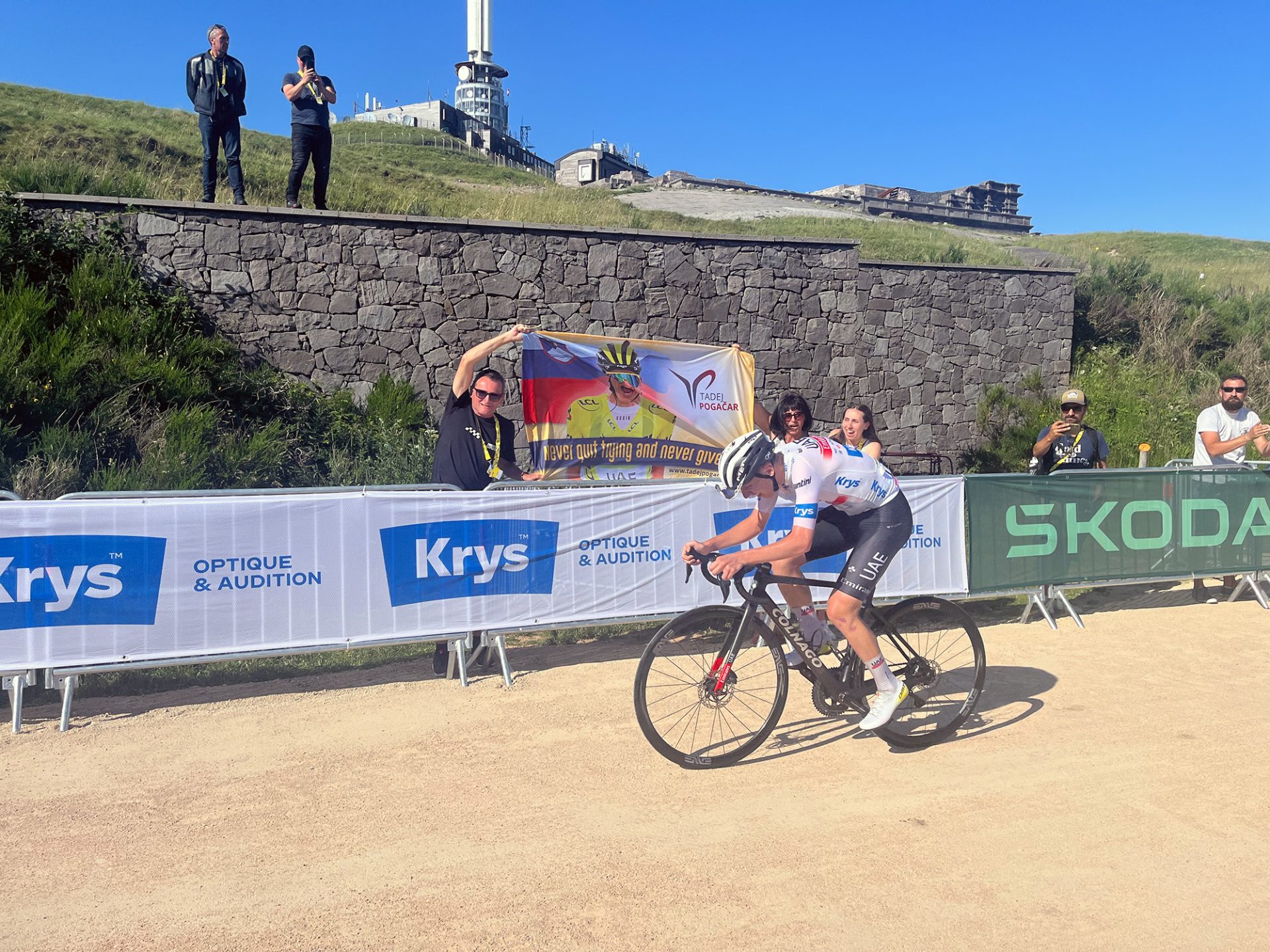
As the riders arrive, the Pogačars politely clap for each and every one of them. Tadej, of course, gets a huge roar, Jonas Vingegaard gets applause too, and then each and every rider is clapped home, with some extra emphasis for UAE Team Emirates or Slovenian riders. The feel is more that of a local race than the biggest event of all and the lack of fans adds to this unique texture of stage 9.
Across the line, the UAE Team Emirates’ president, Matar Suhail Al Yabhouni Al Dhaheri, who is also a construction and real estate magnate, douses his champion rider in water. The man apparently enjoys the camera but doesn’t like interviews.
Pogačar’s younger sister points at the TV screen, because you can see the family on it from the helicopter shot hovering above the finish, but from that vantage point, no-one will even be able to tell that they are the Pogačars. Most people on the ground haven’t noticed either.
The riders keep appearing over the lip of the finishing straight in dribs and drabs, finally excused of their suffering.
Jonas Vingegaard warms down behind a white van parked next to the funicular station. The Jumbo-Visma press officer frets at a close distance while Vingegaard’s partner and child spend some time with dad.
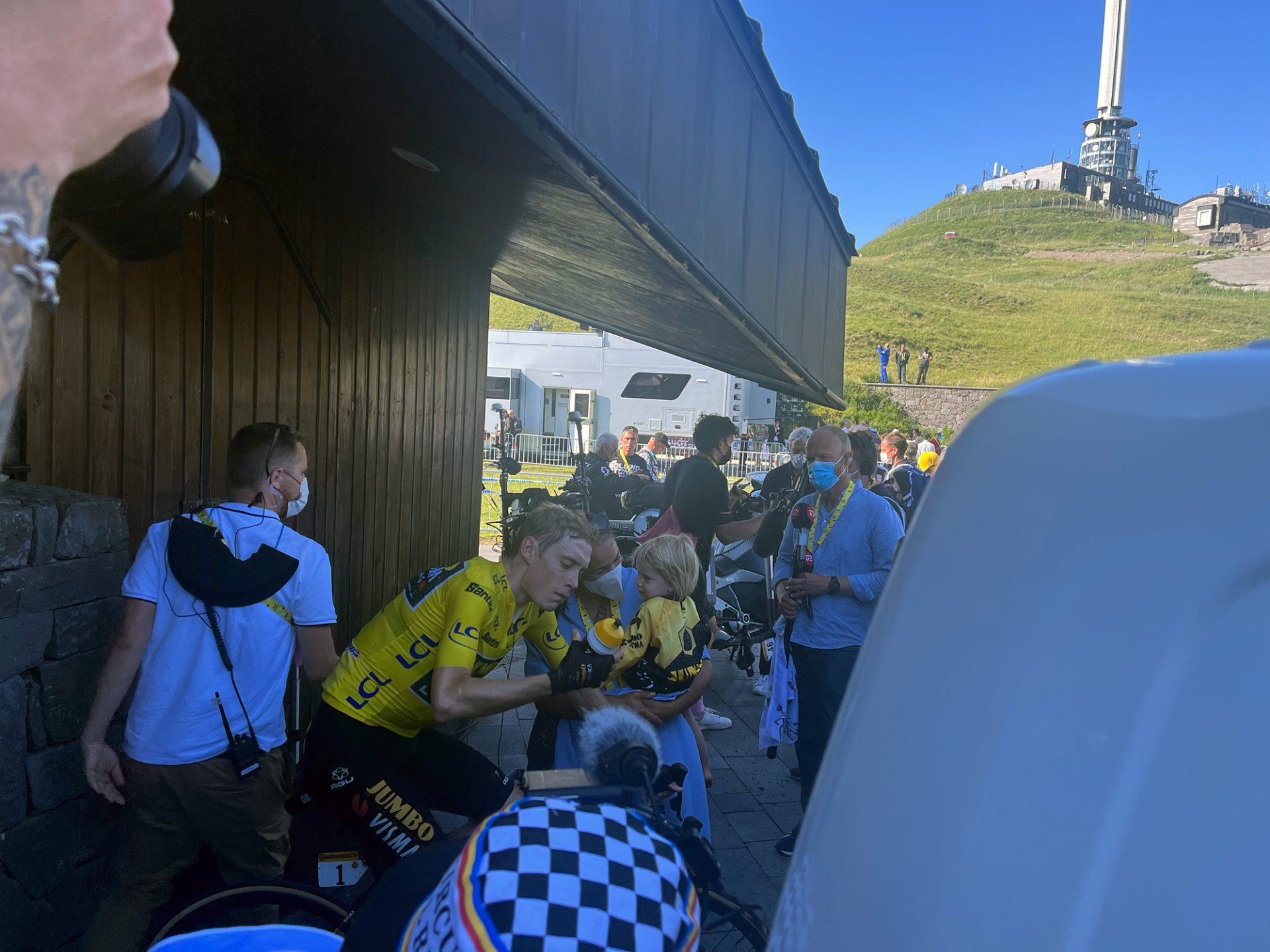
Michael Woods needs his press officer’s attention. It’s urgent. He calls his name over and over again, trying to interrupt him from his less-important conversation. The Canadian stage winner is about to be interviewed on French Television’s mountaintop, temporary TV set. “Mikkel,” Woods says, finally getting the attention he requires. “Is there anything in my teeth?”
Uno-X’s Jonas Gregaard is one of the first to try and get down the mountain while his competitors are still arriving.
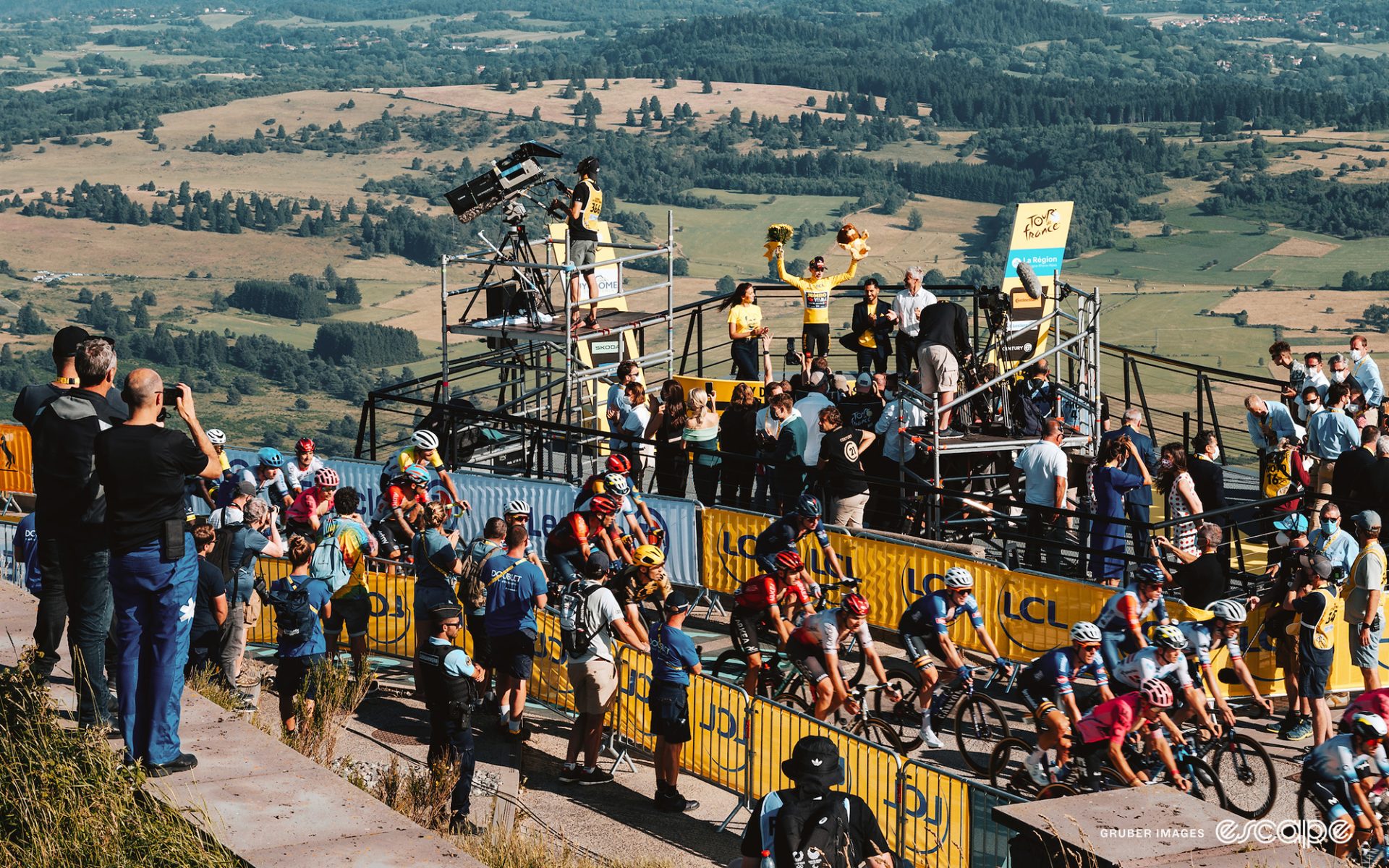
The security man has stopped him and asks where the Dane’s whistle and arm band is, necessary items to distinguish pro riders from punters (and in order to politely move people out of the way). He says he doesn’t know where either item is, he hasn’t been given them, he’s just trying to get back to his team bus at the bottom of the mountain so he can chill the fuck out after nine gruelling days of his debut Tour. Eventually, the security man relents.
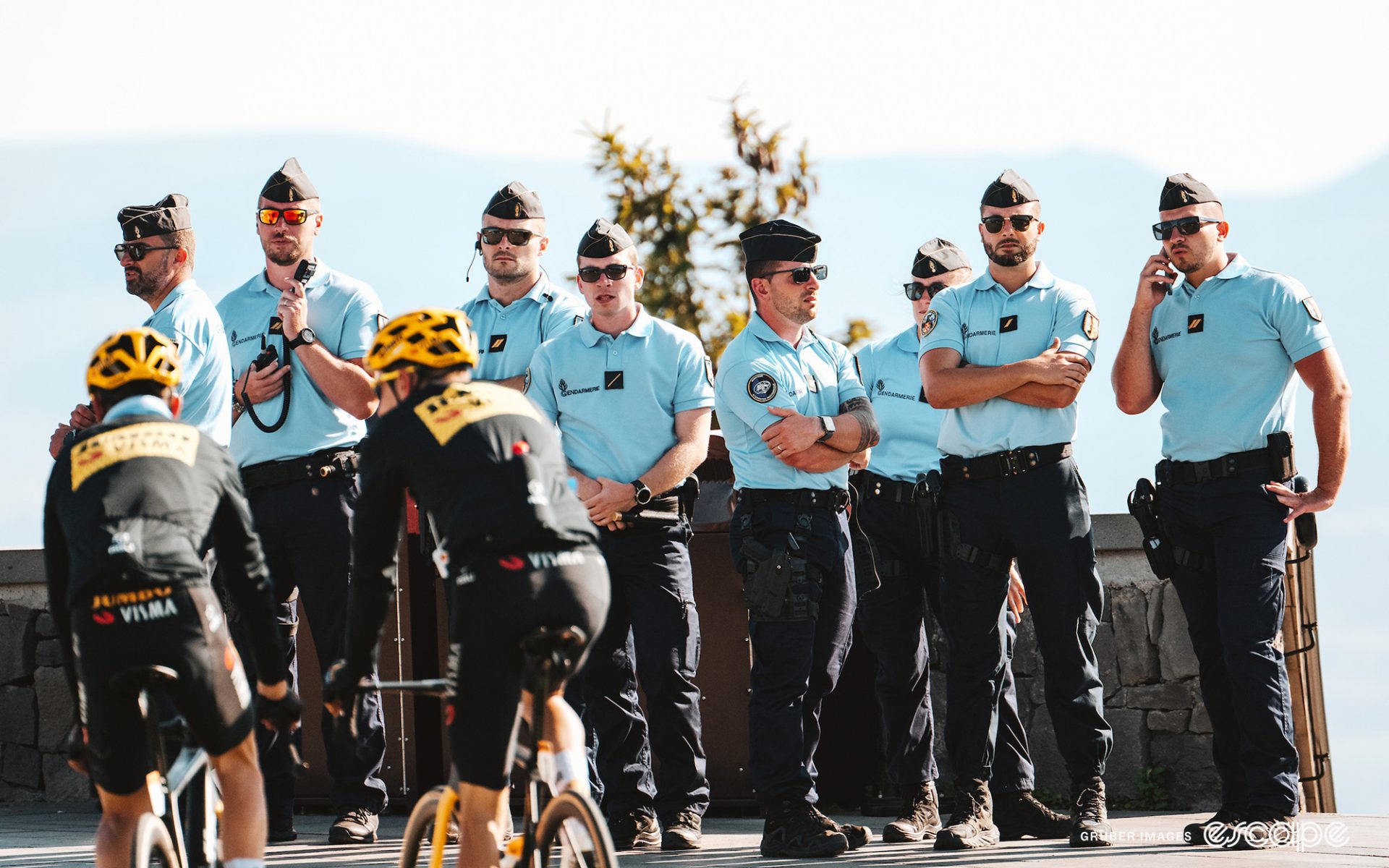
Tadej Pogačar then emerges, finally he gets to greet his family. A big hug and then photographs are taken to remember these fleeting moments. A career where the highlights are experienced at warp speed compared to the hours of preparation and training. And before long it will all be over and they will have their Tadej back.
Pogačar is whisked from tender family moment, to podium, to interview, to another interview. Usually, there are too many people and barriers to see this post-stage dance. The awkwardness of the summit means the pomp of the Tour is laid bare. The minimum has been brought to the top, so all that is left is the choreography of what is supposed to happen at the end of a Tour de France stage.
There is polite applause accompanying each trip to the podium where usually there would be whooping and hollering. Each group of people has been equalised by just how tough it is to get up here. When I speak to Pogačar’s mum, she comments on how difficult it was for her to get the correct accreditation in order to get to the summit. If Pogačar’s own mother found it tricky to access this finish, that lets you know just how streamlined this affair was.
“35 years of waiting,” Christian Prudhomme pondered when Escape Collective asked him if we’ll see this climb return sooner than the gap between this and the last visit. “And it does feel a bit long, I believe.”
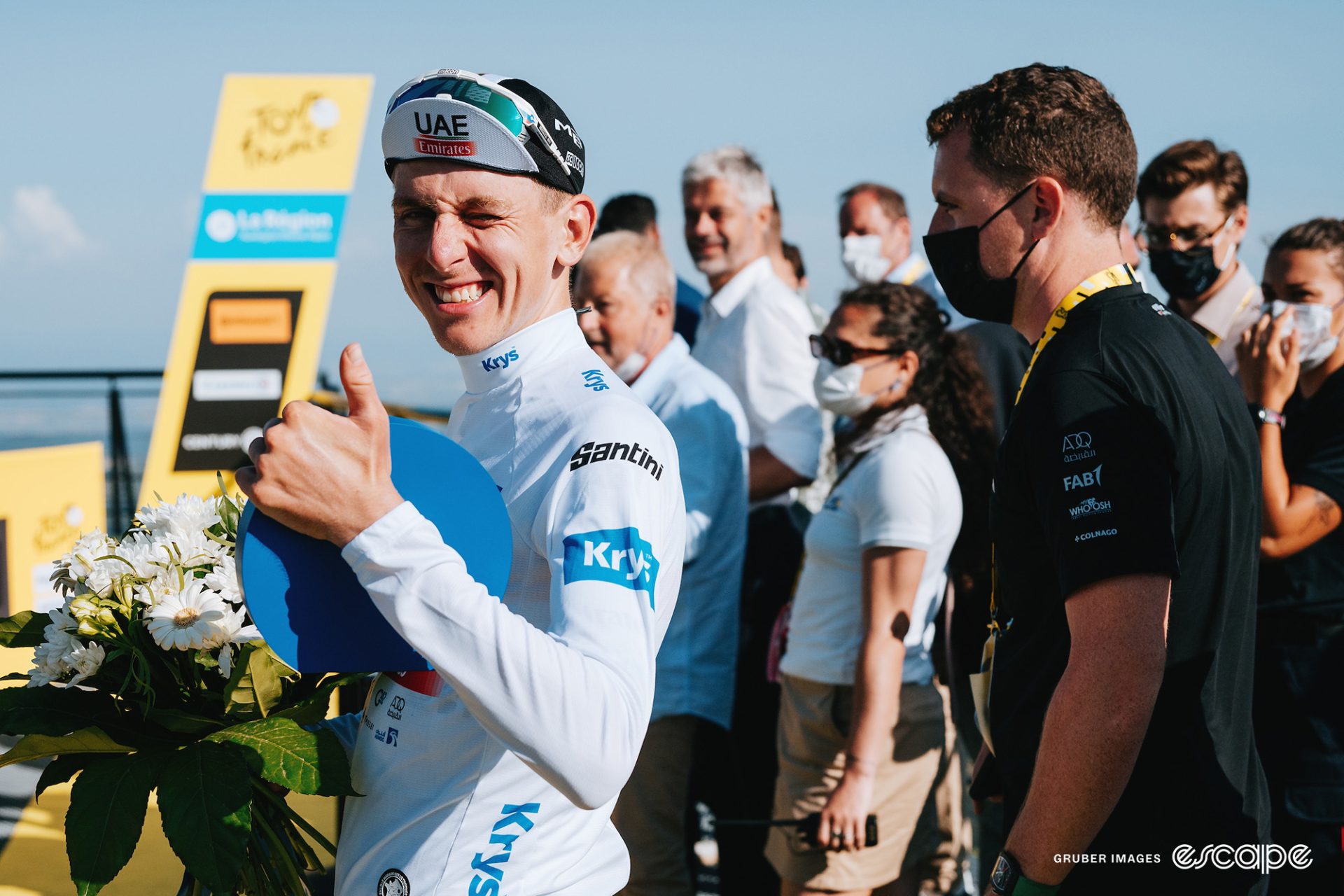
What did you think of this story?
